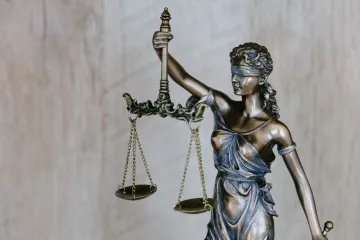
Friday 9 February 2024
3:00 -5:00 Santiago Amaya
Philosophy Department, University of the Andes
“Forgiveness as Politics”
Saturday 10 February 2024
9:00-10:15 David Clark
Center for the Philosophy of Freedom, University of Arizona
“What’s for Desert?”
10:30-11:45 Jada Strabbing
Department of Philosophy, Wayne State University
“Blame and Forgiveness: Two Functional Accounts”
12:00-1:30 Lunch
1:30-2:45 Anna Nyman
Department of Philosophy, Uppsala University
“What’s Unfair about Moral Luck?”
3:00-5:00 Dana Nelkin
Department of Philosophy, University of California, San Diego
“Desert and Degrees of Liability”
All talks will be held in the Maloney Seminar Room, Social Science Building 224 on the University of Arizona Campus. There will be no remote option for the Saturday talks.
*This workshop is generously funded by the Center for the Philosophy of Freedom.
Special thanks to Mary Rigdon, Center Director, for her support!
Please direct questions to Michael McKenna at msmckenna63@gmail.com.
Abstracts
Forgiveness as Politics
Santiago Amaya. Universidad de los Andes
Forgiveness plays a role regulating interpersonal relations—typically, those that occur within the private domain of our lives. Yet, the practice has a distinctive political dimension. The dimension is not limited to so-called political acts of forgiveness, for instance, when a state accepts the apologies issued by another state (Govier 2023) or cases of presidential pardon (Minow 2019; Smith 2023). Even within our private lives, or so I argue in the talk, there is politics in forgiveness.
I begin by describing a set of cases, informed by experiences of forgiveness occurring in the Colombian conflict, but also in other parts of the world. Then I turn to the main argument. I argue that genuine forgiveness requires in these cases certain kind of political arrangements, which are normally brought about by the presence of third parties. The presence of these parties can alter the processes of apologizing and forgiving, shifting the power imbalances that first led to the transgression. After illustrating the point by discussing the role that third parties can play in the processes of memory construction, I show how the lessons derived from these allegedly “marginal” cases generalize to more mundane situations of forgiveness.
What’s for Desert?
David Clark, University of Arizona
The concept of desert plays a starring role in many non-consequentialist theories of criminal punishment. Some have argued that this is a mistake, on the grounds that persons cannot deserve something like punishment. This paper makes a very different case against according desert a central role in punishment theory. I argue that — even if we grant that criminal offenders can deserve punishment — desert still won’t do the theoretical work for which it is typically invoked. Its fundamental limitation is that it does not help us answer what I call the Challenge of Alienation — the challenge of explaining when and why criminal offenders lack some of their usual rights against punishment. No matter how we precisify the concept of desert, I argue, an offender’s deserving punishment cannot explain why he lacks rights against punishment. We must look elsewhere for an answer to this crucial challenge. But this isn’t to say that desert plays no role in the justification of punishment. There are, perhaps, more modest (but so far unheralded) roles for desert in punishment theory — two of which are considered towards the end of the talk.
Blame and Forgiveness: Two Functional Accounts
Jada Strabbing, Wayne State University
In this talk, I put forward views of blame and forgiveness, and I draw out connections between them. First, I argue for a broad understanding of blame, on which blame is any attitude that, by its very nature, presents its target as blameworthy in a negatively-valenced way. I then make the case that forgiveness is openness to reconciliation with the wrongdoer with respect to the wrongdoing. Both accounts are functional accounts. Blame has the “backward-looking” function of presenting its target as blameworthy in a negatively-valenced way, and any attitude (or set of attitudes) that fulfills this function counts as blame. Forgiveness has the “forward-looking” function of effecting reconciliation with a wrongdoer who is repentant, and any attitude (or set of attitudes) that fulfills this function counts as forgiveness. Thus, these two phenomena central to human relationships should both be understood functionally. Further, if we accept that there are different kinds of blame, as I do, then the kind of blame crucial to accountability relationships can be understood in a parallel way to forgiveness – namely, as openness to a broken relationship with the wrongdoer with respect to the wrongdoing.
What’s Unfair about Moral Luck?
Anna Nyman, Uppsala University
According to a popular line of reasoning, we should deny moral luck because it is unfair. While critics have expressed doubts as to the tenability and dialectical usefulness of what is sometimes called the argument from unfairness, both the argument and the objections have yet to be fully spelled out and discussed in detail. In this paper, I will explore what a full-fledged version of the argument would have to look like, whether it holds up under scrutiny, and whether it can do any independent dialectical work.
Desert and Degrees of Liability
Dana Nelkin, University of California, San Diego
In this paper, I examine the relationship among how deserving one is of harm, how liable one is to harm, and how, all things considered, we ought to distribute harm in cases in which harm must come to some. I first consider two influential families of views: according to the first, desert plays no role in liability, despite appearances. According to the second, or what I call the “culpability as constraint” view, desert plays an important role in determining liability to harm, but no further role in determining how, all things considered, we ought to distribute harm. I argue against both of these views, in part by posing a novel puzzle for the “culpability as constraint” view. I then put forward and elaborate a solution that recognizes two distinct roles for culpability in the moral calculus of the distribution of harms.

